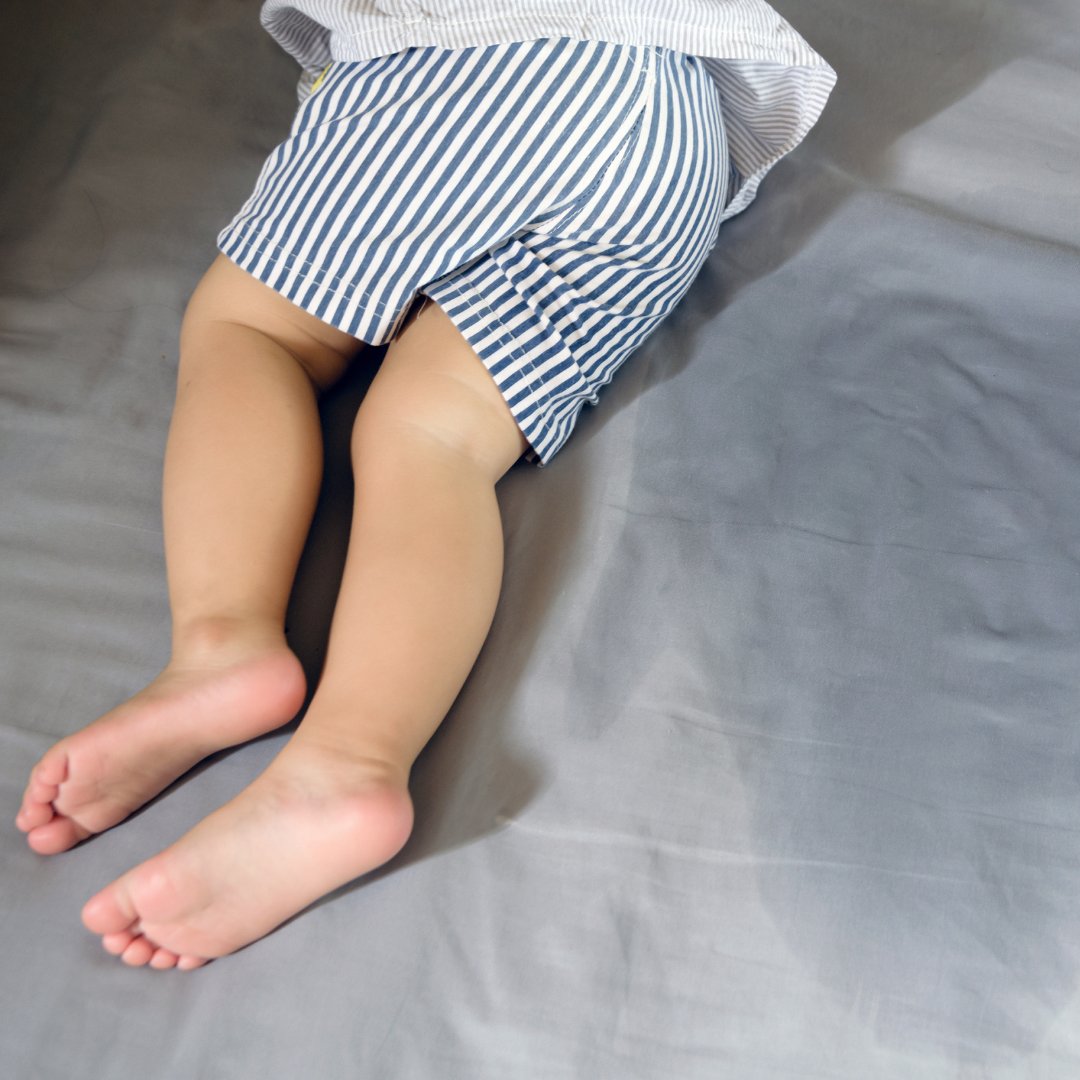On day one of World Bedwetting Week, we’re sharing what bedwetting is, why it happens, and some simple and effective steps that you can try before speaking to your GP, School Nurse or Health Visitor.
What is bedwetting?
Bedwetting is when the bladder empties during sleep. It is not the child or young person’s fault, it does not happen because of something you or they are doing wrong and it is a recognised medical condition in anyone over the age of five. However, the support and basic advice for bedwetting described here are also appropriate for families of younger children who are toilet trained in the day.
Why does it happen?
There are different causes for bedwetting:
- Not being able to wake fully:
The brain doesn’t signal that it needs to empty. However, most children and young people can sleep through the night without needing to go to the toilet.
- Bladder size:
The bladder cannot hold the urine during the night.
Some children with bedwetting also have problems with their bladder when they are awake. These children may experience some urine leaking during the day: they may get damp or wet underwear. Some may go to the toilet more often than usual (frequency) or they may have to get there more quickly than usual (urgency). This can appear to families as if they are leaving it to the last minute to go to the toilet, which is not usually the case: it is the bladder ‘twitching’ at any point during filling, which causes a sudden, strong and unexpected need to get to the toilet quickly.
Making too much wee
Most people make less urine during the night. The bladder can hold all that is produced while asleep, however, if the kidneys are making too much urine while the child or young person is asleep and they are not able to wake to the bladder signals, the bed will get very wet.
Constipation
Constipation can also cause bedwetting or make it worse. This is because the full bowel can put pressure on the bladder. A normal poo is soft, easy to pass, and its colour will be any shade of brown or dark green. Most, children over the age of three open their bowels no more than three times a day and no less than three times per week. Constipation can develop if the poo becomes difficult to pass.
Other signs and symptoms that might indicate constipation include
- Pooing less than three times a week or more than three times a day.
- Soiling (any amount of poo in the underwear).
- This may get better for a few days after doing a large poo.
- A painful bottom, or pain when doing a poo.
- A swollen or bloated tummy. Passing large hard poo which may block the toilet, or passing only small poos (soft or hard) or poos of different sizes and consistencies.
- Appearing to strain to poo or to avoid pooing.
- Poor appetite.
- Angry or irritable mood.
When you think your child may be constipated, speak to their healthcare professional. Constipation in children and young people usually needs to be treated with laxatives.
Bladder & Bowel UK’s Top Ten Tips:
Simple and effective steps you can try now to help with bedwetting.
- Encourage your child to drink well during the day, they should have 6–8 water-based drinks per day. Most school age children should have 1.5 litres of drink in the day which can be divided into their 6-8 drinks.
- Avoid drinks that contain caffeine (tea, coffee, cola, hot chocolate and energy drinks).
- Steer clear of any fizzy drinks, except as an occasional treat.
- STOP drink in the hour before they go to sleep.
- STOP all food in the hour before they go to sleep.
- STOP screen use including TV in the hour before bed.
- Make sure your child goes for a wee just before they go to sleep.
- Ensure good bedtime routines so that your child goes to bed at about the same time most nights.
- Try without night-time pants/nappies for three or four nights. If your child is dry, try without them for longer.
- Speak to your GP or school nurse and ask for treatment if there are any signs of constipation.
Where can I find more information?
We are a national charity that provides information about bladder and bowel conditions for people of all ages. Information on our website is free to access, download and print – www.bbuk.org.uk.
Information on bedwetting is available – www.bbuk.org.uk/children-young-people/resources-for-children.
There is also information about how to speak to your healthcare professional about bedwetting on the Stop Bedwetting website – www.stopbedwetting.org. There is information about World Bedwetting Week – www.worldbedwettingweek.com.
Bladder & Bowel UK produce a free quarterly electronic newsletter for the public, which is full of interesting articles, suggestions and information for people affected by bladder and bowel conditions.
Sign up here – www.bbuk.org.uk/newsletter
You can contact the Bladder & Bowel UK confidential helpline by filling in the web form – www.bbuk.org.uk/helpline-enquiries – or phoning us on 0161 214 4591.



Comments are closed